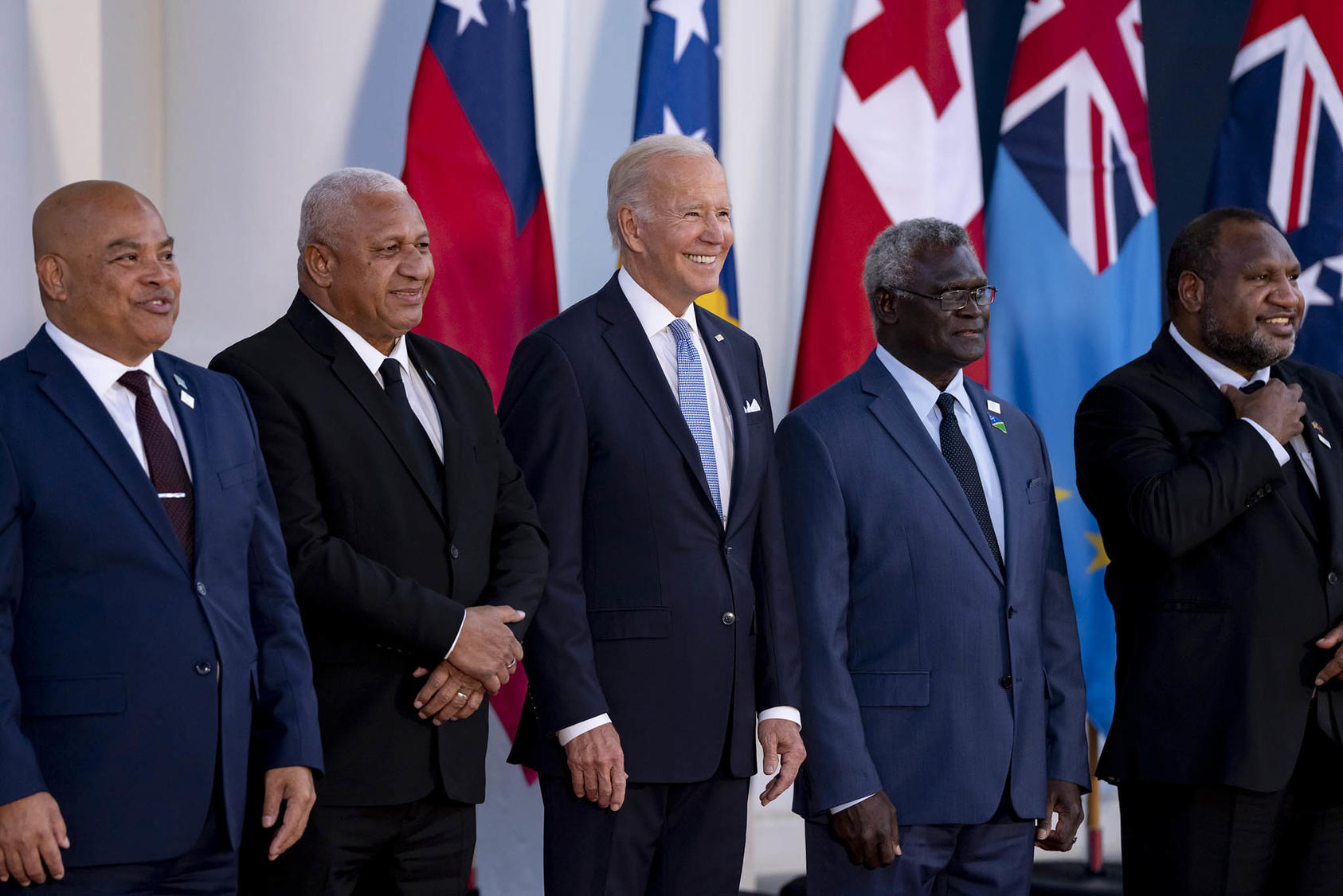This week, leaders from Pacific island nations will convene for a summit hosted by the United States. During the summit, the US will announce its diplomatic recognition of two Pacific islands, pledge fresh funding for infrastructure projects (including the enhancement of Internet connectivity through undersea cables), and pay tribute to regional leaders during an NFL game.
Last Year’s Commitments
In the inaugural summit held last year with representatives from 14 Pacific island countries, the Biden administration made promises to support these island nations in countering China’s “economic coercion” and affirmed its dedication to strengthening partnerships.
Focus on Key Priorities
This year, White House officials have outlined key priorities for the summit, including addressing climate change, promoting economic growth, advancing sustainable development, bolstering public health efforts, and combatting illegal fishing.
Diplomatic Recognition of Cook Islands and Niue
During the summit, the United States will officially recognize the Cook Islands and Niue, marking a significant development. This recognition underscores the Biden administration’s commitment to strengthening relationships with Pacific island nations and expanding its presence in the region.
The Implications of Diplomatic Recognition
Diplomatic recognition carries substantial implications. It signifies the United States’ acknowledgment of these nations as sovereign entities and can lead to intensified diplomatic, economic, and security collaboration.
Countering Chinese Influence
The US summit with Pacific island nations forms part of a broader strategy to counter China’s growing influence in the region. China has been actively increasing its presence and engagement with Pacific island nations through infrastructure projects, loans, and investments.
By hosting these summits and announcing diplomatic recognition, the United States seeks to provide an alternative to Chinese engagement and promote the values of democracy, transparency, and good governance. Additionally, it aims to strengthen economic ties and enhance regional security cooperation.
Addressing Shared Priorities
The summit’s emphasis on shared priorities, including climate change, economic growth, sustainable development, public health, and the combatting of illegal fishing, underscores the pressing challenges facing Pacific island nations.
Of particular urgency is the issue of climate change, as rising sea levels, extreme weather events, and coastal erosion pose significant threats to these communities. The US commitment to addressing climate change aligns with global efforts to mitigate its impacts and transition to clean energy sources.
Sogavare’s Absence and Its Implications
Prime Minister Manasseh Sogavare’s decision to skip the summit draws attention to the complex dynamics in the Pacific region. The Solomon Islands’ deepening ties with China have raised concerns among traditional partners such as the United States and Australia.
Sogavare’s absence from the summit is likely to strain relations with the US, which had expressed disappointment over his decision. This underscores the competition for influence in the Pacific and the strategic choices faced by Pacific island nations.
In Conclusion, the US summit with Pacific island nations signifies a renewed commitment to the region and reflects efforts to counter Chinese influence while addressing shared challenges.
The diplomatic recognition of the Cook Islands and Niue underscores the importance of these partnerships, with implications for regional collaboration, security, and development. Prime Minister Sogavare’s absence highlights the complexities of regional dynamics and the competition among major powers in the Pacific.
